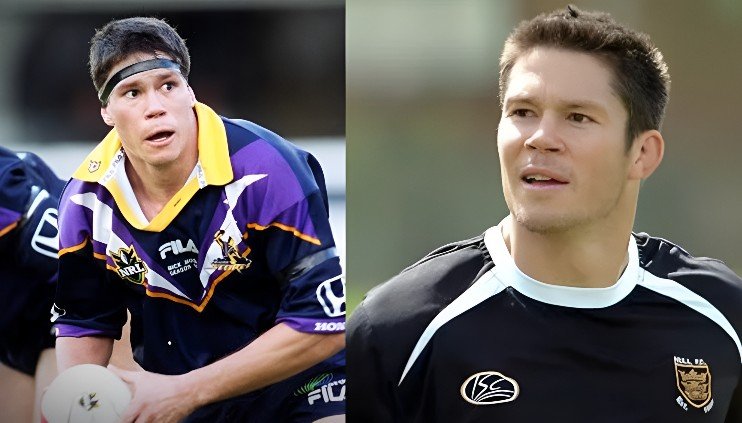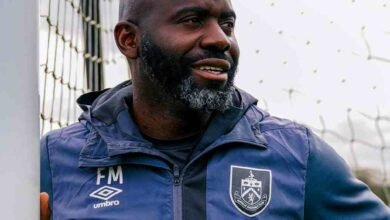Richard Swain: The Relentless Rugby League Warrior Who Defined an Era

Richard Swain is a name that resonates strongly with rugby league enthusiasts across both hemispheres. Born in Tamworth, New South Wales, in 1975, Swain became one of the toughest and most consistent hookers of his generation. Though Australian by birth, he chose to represent New Zealand on the international stage, making him a unique figure in the sport’s history. His career was defined not by flashy tries or highlight-reel moments, but by relentless defence, unwavering stamina, and a team-first mentality that earned him admiration from teammates, coaches, and fans alike.
Early Life and First Steps into Rugby League
Richard Gregory Swain grew up in Tamworth, a regional city in New South Wales known for producing tough and hardworking athletes. His formative years at Farrer Memorial Agricultural High School gave him the grounding in discipline and determination that would later become the hallmark of his playing career. Like many young Australians, Swain was introduced to rugby league at an early age, quickly standing out for his rugged approach to tackling and his natural ability to read the game.
His entry into professional rugby came in the mid-1990s when he was recruited by the short-lived Hunter Mariners during the Super League war. Although the Mariners only existed for one season in 1997, the experience gave Swain a valuable taste of top-flight competition. It was clear even then that he possessed a tireless engine and a defensive edge that could be the backbone of a successful team.
Melbourne Storm: The Making of a Champion
In 1998, Richard Swain joined the newly formed Melbourne Storm, a decision that would change the trajectory of his career. The Storm were embarking on their inaugural season in the National Rugby League, and Swain quickly became a cornerstone of the club.
One of the most remarkable aspects of his time in Melbourne was his durability. From the club’s very first match in 1998 until his departure in 2002, Swain never missed a single game. That record alone speaks volumes about his resilience, professionalism, and physical conditioning.
His finest moment in Melbourne colours came in the 1999 NRL Grand Final when the Storm staged a dramatic comeback to defeat St George Illawarra. Swain’s defensive contributions and leadership from dummy-half were pivotal to the club lifting its first premiership. A year later, he helped Melbourne secure the 2000 World Club Challenge, once again proving his ability to deliver on the biggest stages.
Perhaps more impressive than his silverware was his defensive record. In 2001, Swain became the first player in the NRL to complete over 1,000 tackles in a single season. This feat cemented his reputation as the league’s defensive workhorse, an unsung hero whose tireless efforts often went unnoticed outside the dressing room but were cherished by those who played alongside him.
The Brisbane Broncos Chapter
In 2003, contract issues at Melbourne led Swain to join the Brisbane Broncos. While his stay lasted only one season, he brought his trademark defensive steel to a team already boasting some of the game’s greats. Though not remembered as his defining era, his presence at the Broncos underlined his versatility and reliability.
At Brisbane, he continued to display his remarkable tackling ability and commitment. Even in a side filled with attacking talent, his steady influence was an asset. The year served as an important stepping stone before the next great chapter of his career, across the world in the English Super League.
Hull FC: A New Home and Lasting Legacy
In 2004, Richard Swain signed with Hull FC in England’s Super League. For many Australian players, moving to the UK was seen as a late-career adventure, but Swain approached it with the same intensity he had shown in the NRL. Over four seasons, he made nearly 100 appearances for Hull, quickly becoming one of the most respected figures in the competition.
In his debut season, he was named the Super League’s top tackler, recording a staggering 907 tackles. This achievement epitomised his work rate and earned him immediate admiration among Hull’s passionate fan base.
Swain’s crowning moment in England came in the 2005 Challenge Cup Final at Cardiff’s Millennium Stadium. Hull FC faced Leeds Rhinos in a gripping contest, and with the game in the balance, Swain famously charged down a late drop-goal attempt from Kevin Sinfield. That decisive play ensured Hull’s victory, delivering one of the club’s greatest modern triumphs. For Hull fans, Swain’s commitment, leadership, and never-say-die spirit etched his name permanently into club folklore.
His consistent excellence was eventually honoured with induction into the Hull FC Hall of Fame, making him one of only a handful of players from the Super League era to receive that recognition.
International Career with New Zealand
Despite being born in Australia, Richard Swain qualified to represent New Zealand and made his debut for the Kiwis in 1999. His decision reflected his pride in family heritage and his desire to challenge himself at the highest level.
Over the next four years, Swain became a cornerstone of the New Zealand pack, winning 20 caps between 1999 and 2003. He played in several major tournaments, including the Tri-Nations, the Rugby League World Cup, and tours of Great Britain and France.
Swain’s international record was impressive: 4 tries and 16 goals, tallying 30 points. More importantly, his presence added balance to the Kiwi side. His defensive consistency freed up attacking players to take risks, and his cool head in pressure situations helped New Zealand remain competitive against dominant Australian and English sides.
Retirement and Life Beyond the Game
By 2007, recurring back injuries forced Richard Swain to retire earlier than he might have wished. Yet, he left the game with a reputation as one of the hardest workers and most durable hookers of his era.
Unlike many professional athletes who struggle to transition into life after sport, Swain adapted quickly. He moved into the mining industry, drawing upon the same discipline and work ethic that had defined his rugby career. His story is a testament to the idea that resilience and commitment are transferable qualities, whether on the field or in everyday life.
Playing Style and Strengths
Richard Swain’s game was not built on speed or flair but on reliability, toughness, and intelligence. His tackling was tireless, his positioning flawless, and his ability to distribute cleanly from dummy-half gave his teams stability. Coaches trusted him implicitly, knowing that Swain would deliver 80 minutes of honest effort, no matter the circumstances.
His leadership was also notable. Whether as captain or senior figure, he commanded respect without needing to shout or showboat. His actions spoke louder than words, setting standards for younger players to follow.
Legacy and Impact
Richard Swain’s career may not have been decorated with endless tries or golden boots, but his influence was immense. For Melbourne Storm, he was part of the club’s first era of success. At Hull FC, he became a Challenge Cup hero and Hall of Fame inductee. For New Zealand, he was a defensive general who helped the Kiwis punch above their weight.
The true measure of Swain’s legacy lies in the respect he commands. Teammates, coaches, and opponents alike recognised that he embodied everything a professional athlete should be: committed, selfless, and consistent.
Conclusion
Richard Swain stands as one of rugby league’s great unsung heroes. While others may have grabbed headlines with spectacular tries, Swain built his reputation through tireless work, defensive grit, and a refusal to give anything less than his best. From Tamworth to Melbourne, Brisbane, Hull, and the international stage with New Zealand, his journey was defined by dedication and durability.
For fans and students of the game, Richard Swain’s story is a reminder that rugby league is not only about flair and brilliance, but also about sacrifice, resilience, and team spirit. His legacy endures as a benchmark of what it means to give everything for the jersey.



